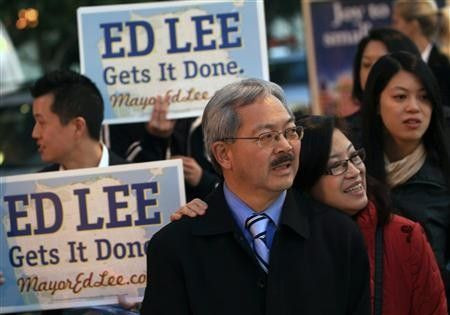San Francisco Backs Mayor's Pensions Plan

San Francisco voters backed interim Mayor Ed Lee's plan for tackling the city's rising pension expenses for its public employees over a competing plan on Tuesday's ballot, according to unofficial results on Wednesday.
The two complicated measures have been closely watched in California as the most populous U.S. state's public pension politics have been heating up this year. [nN1E7A711K]
Governor Jerry Brown, a Democrat, last month unveiled a plan to overhaul pensions for state and local workers to reduce their cost to the cash-strapped state government and local governments that are also contending with weak revenue.
Republican activists responded by saying they would press to put their own pension overhaul to voters in the November 2012 election.
At the local level, big California cities such as San Jose and San Diego may also see plans to rein in public pension expenses on the ballot next year regardless of how efforts to do the same pay out in the state capital.
Lee's measure was backed by labor and business groups and other top San Francisco officials and aims to save the city up to $1.3 billion over 10 years. Its rival measure pressed by San Francisco Public Defender Jeff Adachi aimed for savings of as much as $1.7 billion over the same time period.
Despite their differences, the measures would have employees contribute more of their pay toward their pensions, an approach many other local governments across the state have been adopting and that Brown is urging in his plan with a proposed 50-50 split in monthly pension contributions between public employees and their employers.
Meanwhile, election results on Wednesday showed voters in Modesto in California's Central Valley backing three advisory measures intended to gauge sentiment on possible changes to that city's public pensions.
The measures proposed putting public-sector workers into 401(k)-like retirement accounts, revising formulas for calculating their pensions and raising retirement ages.
© Copyright Thomson Reuters {{Year}}. All rights reserved.





















